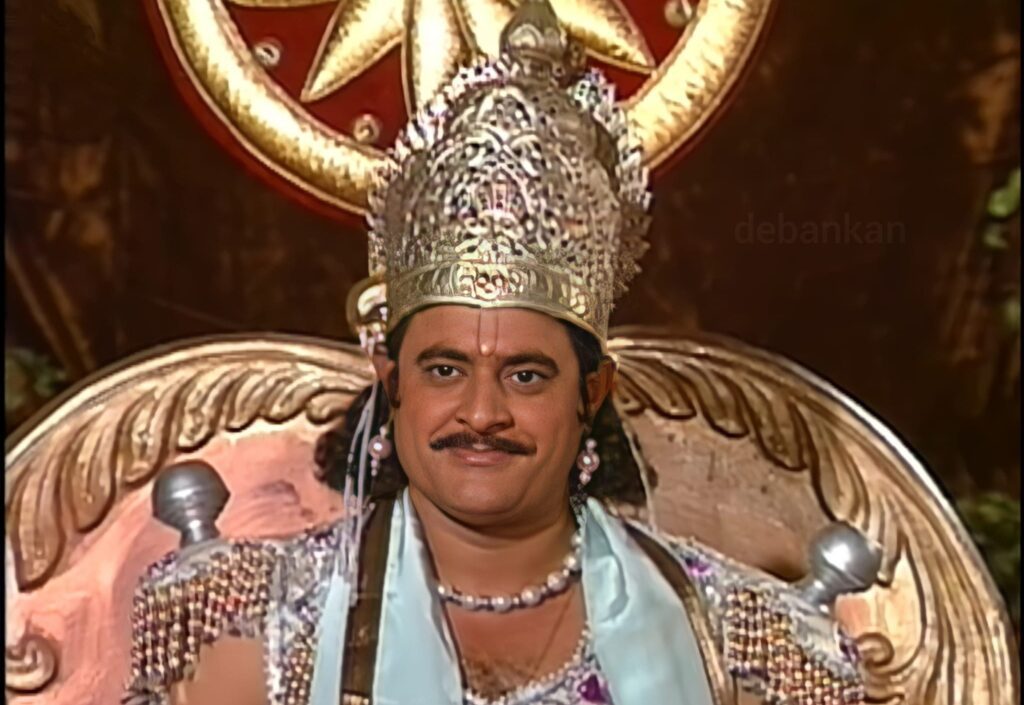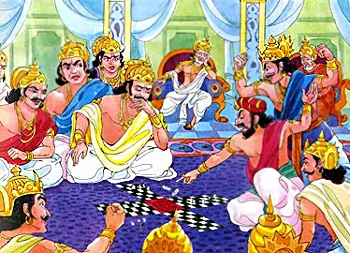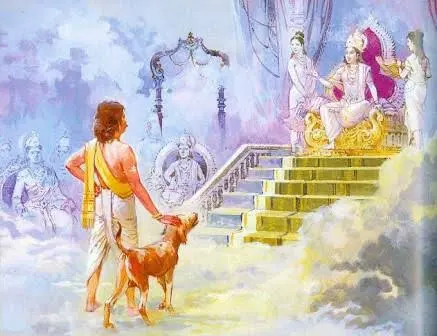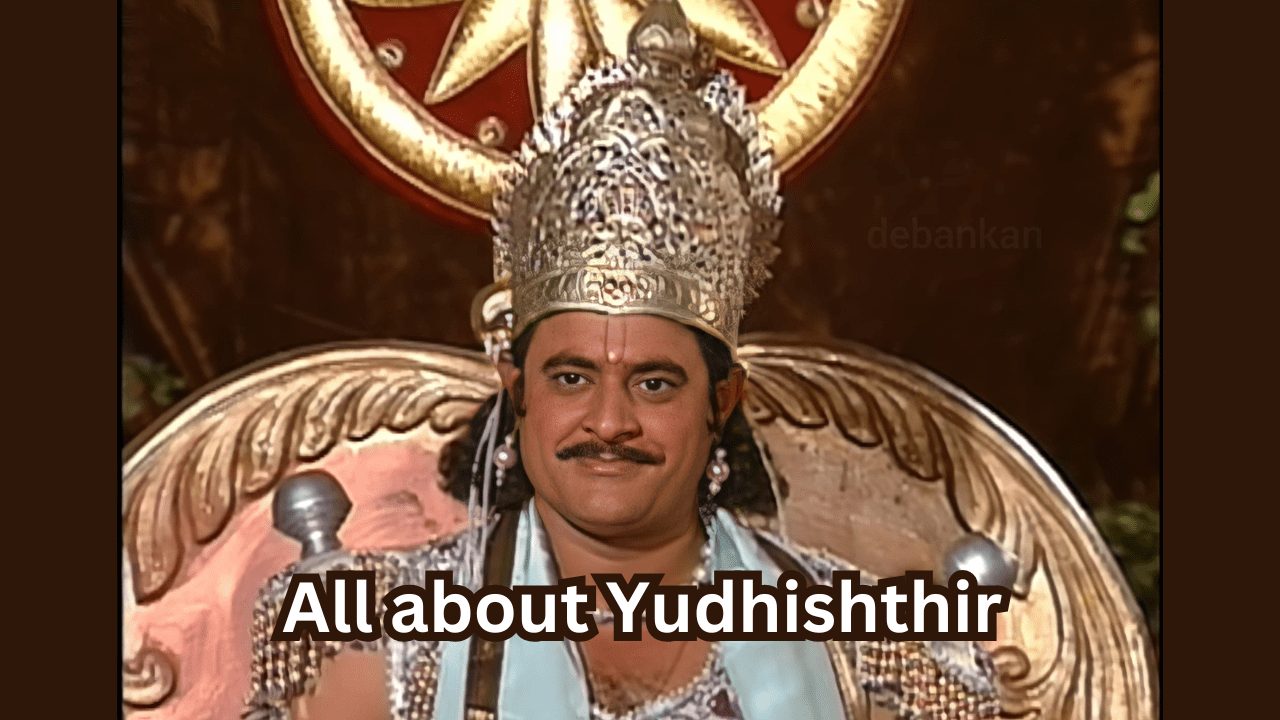Among the numerous characters of the Mahabharata, one figure stands out as the epitome of truth and Dharma—Yudhishthir. Often referred to as Dharmaraj, Yudhishthir was the eldest of the Pandavas and the rightful heir to the Kuru throne. His life was a saga of trials, temptations, and decisions that constantly tested his commitment to righteousness. Yet, despite facing immense hardships, he remained steadfast in his principles.
In this blog, I will explore the life of Yudhishthir, his strengths and weaknesses, his role in the Mahabharata, and the spiritual lessons we can learn from his journey. Let’s uncover the depth of his character and understand why he remains an inspiration for truth seekers and spiritual aspirants even today.
Who Was Yudhishthir?

Yudhishthir was the eldest son of King Pandu and Queen Kunti. However, he was not born through conventional means. Due to a curse on Pandu, Kunti invoked the blessings of Lord Yama, the god of death and righteousness, to conceive Yudhishthir. This divine origin shaped his destiny as a ruler who was bound to Dharma.
From childhood, Yudhishthir displayed an unshakable commitment to truth and justice. His education under Guru Dronacharya, alongside his brothers and the Kauravas, further refined his knowledge of governance, ethics, and warfare.
Why Was Yudhishthir Considered the Rightful Heir to the Throne?
1. Lineage and Legitimacy
As the eldest son of Pandu, Yudhishthir was the rightful heir to the Kuru throne. However, due to political manipulations by Dhritarashtra and his son Duryodhana, he was denied his birthright.
2. Righteousness Over Power
Unlike Duryodhana, who sought the throne out of greed and ego, Yudhishthir’s claim was based on his ability to rule with justice and compassion. This distinction made him a true king in the eyes of sages and wise men.
3. Spiritual Authority
His unwavering adherence to truth and Dharma made him the ideal ruler. Even in exile, he was respected by kings, sages, and even celestial beings, proving that his kingship transcended mere political authority.
Yudhishthir’s Greatest Trials and How He Handled Them
1. The Game of Dice – The Test of Patience

One of the most tragic episodes of the Mahabharata was Yudhishthir’s participation in the game of dice. Tricked by Shakuni and driven by a flawed sense of duty, he wagered his kingdom, his brothers, and even his wife, Draupadi. This incident exposed his one major flaw—his inability to recognize deception. However, it also highlighted his unbreakable commitment to his word.
The lesson? Even the most righteous can be manipulated when they let their ideals blind them to reality.
2. The Exile – The Test of Endurance
After losing everything, Yudhishthir, along with his brothers and Draupadi, spent 13 years in exile. Instead of harboring resentment, he used this time to refine his wisdom. He sought guidance from sages, engaged in spiritual practices, and deepened his understanding of Dharma.
3. The Kurukshetra War – The Test of Justice
Though reluctant to wage war, Yudhishthir had to fight for Dharma. Despite his personal aversion to violence, he led his army with determination. Even after winning the war, he struggled with guilt over the bloodshed. His conversation with Krishna and Bhishma after the war is one of the most profound spiritual discussions in the Mahabharata.
The Spiritual Lessons from the life of Yudhishthir
1. Truth is the Highest Dharma
Yudhishthir’s unwavering commitment to truth is legendary. When asked to lie during the war, he found it almost impossible, proving that he valued truth more than victory. This teaches us that honesty is the foundation of a righteous life.
2. Leadership is a Responsibility, Not a Privilege
Unlike power-hungry rulers, Yudhishthir saw kingship as a duty to serve his people. He ruled with wisdom and fairness, setting an example for leaders everywhere.
3. Detachment and Surrender
After ruling for years, Yudhishthir renounced everything and walked towards the Himalayas in pursuit of liberation. His final test came when he refused to abandon a loyal dog on his journey. This act symbolized the highest form of compassion and Dharma.
Memorable Incidents
- Yaksha Prashna – The Wisdom Test
- Before regaining his kingdom, Yudhishthir was tested by a Yaksha (a celestial being). He had to answer profound questions about life and Dharma. His responses are timeless lessons in wisdom.
- One of the questions was: “What is the greatest wonder in this world?”
- Yudhishthir replied: “Day after day, countless beings die, yet those who remain believe themselves to be immortal. This is the greatest wonder.”
- His Final Test – The Dog’s Loyalty
- As Yudhishthir ascended to heaven, a dog accompanied him. When Indra invited him to enter heaven, he refused to leave the dog behind, as abandoning a loyal companion would be against Dharma. It was later revealed that the dog was an incarnation of Dharma itself, reaffirming that Yudhishthir was indeed the highest follower of righteousness.

Conclusion – Why Yudhishthir Matters Today
Yudhishthir’s story is not just a historical or mythological account—it is a spiritual guide for all of us. In a world where truth is often compromised for convenience, where power is sought without responsibility, and where materialism overshadows ethics, his life serves as a beacon of righteousness.
If there’s one thing to take away from Yudhishthir’s journey, it’s this: No matter how tough the road, staying true to Dharma will always lead to ultimate victory—not necessarily in the material world, but in the spiritual realm where real peace lies.
As Krishna said in the Bhagavad Gita: “Dharma protects those who uphold it.” Yudhishthir’s life is the greatest testament to this eternal truth.

